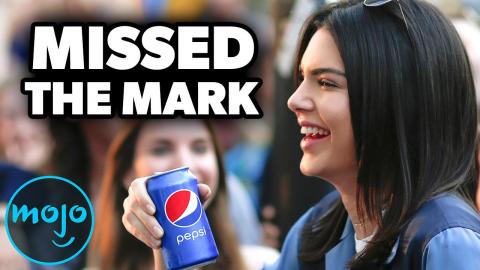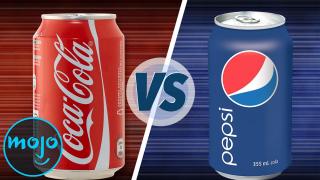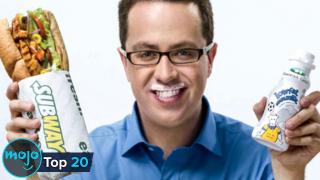Top 10 Worst Apologies From Brands

#10: Budweiser
This beer company has actually produced numerous apologies. Back in 2015, the brand got in trouble for their #UpforWhatever campaign, as the label read, “The perfect beer for removing ‘no’ from your vocabulary for the night.” When called out on the insensitive slogan, Budweiser owner Alexander Lambrecht went on the defensive, claiming that the campaign, “Has inspired millions of consumers to engage with our brand in a positive and light-hearted way.” It was not the type of heartfelt response that people were expecting. In 2019, Budweiser creatively apologized for sexist ads from the ‘50s and ‘60s, re-imagining posters in the same vintage style but updating them with more modern sensibilities.
#9: Volkswagen
As some may remember, the fall of 2015 was a hot time for Volkswagen. The EPA revealed that the German company was knowingly violating the Clean Air Act by cheating at emissions testing. The cars would meet standards during the testing itself thanks to specially programmed diesel engines, but when on the road, the cars were spewing 40x more pollutants - an amount that would have easily prevented the vehicles from passing. Chief executive Martin Winterkorn defended himself, claiming that he was unaware of the company’s maleficence. Not only that, but the company provided a horribly misguided apology by offering its clientele $500 off their next Volkswagen.
#8: Peloton
The Peloton Bike: Is It Worth It?
The main products of this New York-based company are treadmills and stationary bikes equipped with TVs that allow its users to stream professional classes from home. For the 2019 holiday season, Peloton released a commercial which sees a man giving his wife a stationary bike. The commercial was seemingly implying that he wasn’t happy with his wife’s physical appearance and was encouraging her to lose weight. As such, it was widely criticized and deemed sexist by many. Peloton offered a non-apology in return, stating, “We’re disappointed in how some have misinterpreted this commercial.” It’s the classic deflective apology, putting the onus on the consumer rather than taking the blame for a misguided advertisement.
#7: BrewDog
Popular Scottish brewery BrewDog has endured numerous controversies throughout its short life, and these often aren’t helped by pithy and insincere apologies. Responsible drinking advocates Portman Group took issue with the brand’s marketing that emphasized the beer’s intoxicating effects, and in response, BrewDog stated, “We are sorry for never giving a [bleep] about anything the Portman Group has to say.” And in June of 2021, hundreds of ex-staff accused the brewery of fostering a toxic workplace that even led to mental illness. Following an apology and an internal note, the ex-staff members wrote, “We want you to know that we categorically refute everything suggested in this [note]” while calling the statements “grotesque”.
#6: Wayfair
Back in June of 2019, the employees of e-commerce company Wayfair walked out of the job after discovering that they were selling bedroom furniture to migrant detention centers. Wayfair management refused to apologize for the controversy, stating in a response letter, “As a retailer, it is standard practice to fulfill orders for all customers and we believe it is our business to sell to any customer who is acting within the laws of the countries within which we operate.” Instead, Wayfair co-founder Steve Conine personally met with his employees and guaranteed that the company would donate an undisclosed amount of money to charity.
#5: Dove
How Dove Changed Beauty Advertising
In October of 2017, Dove posted a controversial advertisement to Facebook that depicted a black woman removing her shirt and turning into a white woman. The ad quickly went viral and was widely criticized for being racist. Dove removed the ad from Facebook and issued an apology, stating, “An image we recently posted on Facebook missed the mark in representing women of colour thoughtfully. We deeply regret the offence it caused.” The language employed in the apology was also widely criticized, specifically the company’s use of “missed the mark”. For some, this was not Dove taking responsibility or acknowledging its mistake, but simply admitting that the ad had caused offense.
#4: Equifax
In the summer of 2017, credit reporting agency Equifax suffered a catastrophic data breach when hackers accessed the credit records of over 140 million people. It took Equifax six weeks to notify customers, and the company ended up paying $575 million in settlements. Equifax CEO Richard F. Smith apologized with a lengthy op-ed in USA Today, acknowledging the “concern and frustration” that the event caused while also encouraging its clientele to enroll in identity theft protection. Affected customers didn’t care for the advice or the apology - especially when it was coming from the CEO. Finally acknowledging the mistake, Smith stepped down just a few weeks later, as did the information and security officers.
#3: Pepsi
Coke Vs Pepsi
Companies love utilizing the old adage “we missed the mark”. It’s a sly way of acknowledging controversy without really taking blame or responsibility for the preceding offense. Such is the case with the infamous Pepsi BLM ad of 2017. As everyone probably remembers, the ad in question was accused of trivializing the Black Lives Matter movement, complete with Kendall Jenner unifying the country through the corporate power of Pepsi. Pepsi was quick to pull the ad amidst the intense backlash, stating, “Clearly we missed the mark, and we apologize. We did not intend to make light of any serious issue.” Maybe Pepsi can’t cure society’s ills after all.
#2: United Airlines
Is There a United Earth Government? | Unveiled
2017 was just a disastrous year for PR. On April 9, pulmonologist David Dao Duy Anh was forcefully dragged from a United Airlines flight, as the company wanted his seat for a deadheading employee. It’s called bumping, and it’s a nice way of saying that the airline can kick you off their airplane without prior notice. Dao refused, prompting a physical reaction from security personnel. CEO Oscar Munoz defended the move, using corporate speak by calling Dao’s eviction a “re-accommodation” and calling him “belligerent” - a description that was disputed by the other passengers. Munoz apologized following further backlash, but for many, it was far too late and came across as insincere.
#1: BP
Top 20 Worst Apologies From Fast Food Companies
The early 2010s were not a great time for BP, what with the historic oil spill and monumental PR disaster. On April 20, 2010, the Deepwater Horizon suffered a blowout, killing 11, injuring 17, and sending over 200 million gallons of oil into the Gulf of Mexico. BP CEO Tony Hayward only made the situation worse while apologizing, stating, “There’s no one who wants this thing over more than I do. I want my life back.” The comment was deemed horribly insensitive and tone deaf, especially considering that 11 people had died in the disaster. He then had to apologize for the apology, and that is never a good look. About six months after the spill, Hayward was replaced as CEO.

 1
1
 0
0
 report
report





